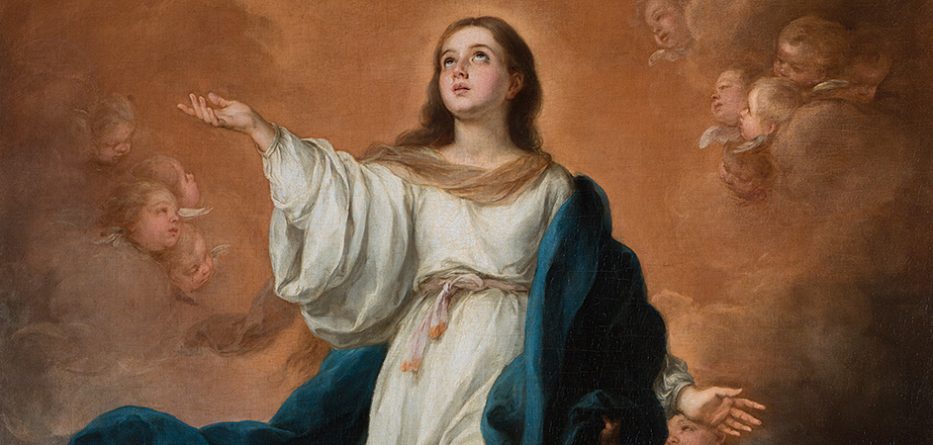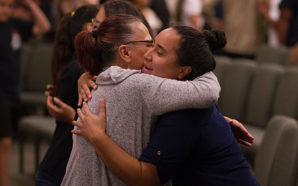The Solemnity of the Immaculate Conception of the Blessed Virgin Mary
Readings: Genesis 3:9-15, 20; Psalm 97(98):1-4; Ephesians 1:3-6; 11-12; Luke 1:26-38
8 December 2022
In Catholic devotion, the variations and unpredictability of our ordinary life are often smoothed out. Jesus’ birth on 25 December, for example, is celebrated exactly nine months after the Angel’s visit to Mary on 25 March. Similarly, the feast of Mary’s Conception on 8 December is held exactly nine months before her birthday on 8 September.
The story of the Feast of the Immaculate Conception, however, is not so straightforward as this timetable suggests. Like all Christian feasts, it is most deeply about Jesus. Mary’s conception of Jesus matters to Catholics because Jesus matters. And, of course, Mary matters to us because she mattered to Jesus as he carried out the plan of God’s joining us. The feast reminds us that God prepared Mary’s path to become mother of God’s Son from her own conception, and assures us that God also prepares our own unique path to a faithful human life from our conception. Our birth and our life are not accidents but represent invitations and paths to God.
That explains why, in the early Church, Christians became so interested in the people described in the Gospels as friends and companions of Jesus. Mary and the Apostles become part of the Gospels written for different communities which gave a life of their own to figures hardly mentioned like Ann and Joachim, Mary’s parents. By imagining the lives of the saints, we can recognise ways in which God is present in our own lives. They become companions for us. So it is easy to see why Mary was reverenced as the Mother of God and why the story of her conceiving Jesus as a virgin became so important in the early Church. That Mary gave birth to Jesus testified to his being human; that Jesus was born of a virgin testified to his being divine. Both aspects of Jesus’ conception speak of God’s gift in Jesus, a gift that goes back behind his life to its makings.
The belief that Jesus was sinless, though tempted like us, was then extended to Mary. God had prepared Jesus’ birth by giving him a mother who was also without sin.
In the Western Church, however, theologians had adopted the concept of original sin in order to explain how all human beings sinned and needed salvation. Adam sinned and passed on to all human beings, both the guilt of sin and its effects on our sinfulness. The human race was sentenced to damnation, only to be rescued by Christ’s death on the Cross. This understanding drew on negative attitudes to human sexual intercourse, seeing the loss of self-control it involved as sinful, so passing on Adam’s sin through coming generations. This raised the question of whether Mary, as well as never sinning, was also free of original sin. Many theologians met this question by saying that God’s grace worked backwards as well as forwards. Mary was conceived full of grace through the salvation that Jesus would later bring.
That understanding of Mary’s conception remained an open question, partly because the Eastern Church did not appeal to original sin to explain human sinfulness and salvation, and partly because there was no mention of it in Scripture. But after some conflict, the Feast of the Immaculate Conception that celebrates Mary’s freedom from Original Sin spread and became popular. In the 19th century, a time when Catholics emphasised the difference between themselves and other Christians, Pope Pius X consulted Bishops and proclaimed the dogma that Mary was conceived free from original sin. It remains important for us because it emphasises God’s gift to us through our lives and the hope that we shall become transformed into what Mary was from conception.
Fr Andrew Hamilton SJ writes for Jesuit Communications and Jesuit Social Services.








